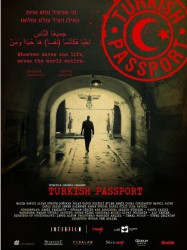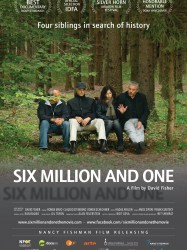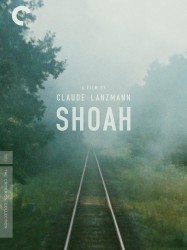Hiding and Seeking est un film de genre Documentaire
Hiding and Seeking (2004)

Si vous aimez ce film, faites-le savoir !
Genres Documentaire
Themes Le racisme, Religion, Documentaire sur la discrimination, Documentaire sur le droit, Documentaire sur la guerre, Documentaire historique, Documentaire sur une personnalité, Documentaire sur la religion, Politique, Religion juive, Documentaire sur la Seconde Guerre mondiale
Note77%










Hiding and Seeking: Faith and Tolerance After the Holocaust is 2004 documentary film about Menachem Daum, an Orthodox Jew and son of German Nazi Holocaust survivors who has spent his life interviewing survivors about the impact of the Holocaust on their lives. After hearing a disturbing tape of a rabbi openly preaching "hatred" of non-Jews, Daum attempts to raise an outcry in his Brooklyn Orthodox community. When ignored by the media and community leaders, Daum decides to fly to Israel to discuss the matter with his two sons, concerned with the "ethical legacy" he is responsible for leaving them.
Hiding and Seeking was produced, written, and directed by Menachem Daum and Oren Rudavsky and aired on PBS's Point of View series in 2005. It has been met with high critical praise, receiving a 90% "Fresh" rating on Rotten Tomatoes.
Commentaires
Postez un commentaire :
Suggestions de films similaires à Hiding and Seeking
Il y a 8957 ayant les mêmes genres cinématographiques, 12785 films qui ont les mêmes thèmes (dont 60 films qui ont les mêmes 11 thèmes que Hiding and Seeking), pour avoir au final 70 suggestions de films similaires.Si vous avez aimé Hiding and Seeking, vous aimerez sûrement les films similaires suivants :

Les Derniers jours (1998)
, 1h27Réalisé par James Moll
Genres Drame, Guerre, Documentaire, Historique
Thèmes Le racisme, Religion, Documentaire sur la discrimination, Documentaire sur le droit, Documentaire sur la guerre, Documentaire historique, Documentaire sur une personnalité, Documentaire sur la religion, Politique, Religion juive, Documentaire sur la Seconde Guerre mondiale
Note78%





Le documentaire relate l'histoire de cinq juifs hongrois durant l'holocauste, en s'intéressant notamment à la vie dans les camps de concentration et au désir de vivre des prisonniers.

Turkish Passport (2011)
, 1h31Genres Drame, Documentaire, Historique
Thèmes Le racisme, Religion, Documentaire sur la discrimination, Documentaire sur le droit, Documentaire sur la guerre, Documentaire historique, Documentaire sur une personnalité, Documentaire sur la politique, Documentaire sur la religion, Politique, Religion juive, Documentaire sur la Seconde Guerre mondiale
Note79%





Turkish Passport tells the story of diplomats posted to Turkish embassies and consulates in several European countries, who saved numerous Jews during the Second World War. Whether they pulled them out of Nazi concentration camps or took them off the trains that were taking them to the camps, the diplomats, in the end, ensured that the Jews who were Turkish citizens could return to Turkey and thus be saved. Based on the testimonies of witnesses who traveled to Istanbul to find safety, Turkish Passport also uses written historical documents and archive footage to tell this story of rescue and bring to light the events of the time. The diplomats saved not only the lives of Turkish Jews, but also rescued foreign Jews condemned to a certain death by giving them Turkish passports. In this dark period of history, their actions lit the candle of hope and allowed these people to travel to Turkey, where they found light. Through interviews conducted with surviving Jews who had boarded the trains traveling from France to Turkey, and talks with the diplomats and their families who saved their lives, the film demonstrates that "as long as good people are ready to act, evil cannot overcome".

The Nazi Plan (1945)
Réalisé par George Stevens
Origine Etats-Unis
Genres Documentaire
Thèmes Le racisme, Religion, Documentaire sur la discrimination, Documentaire sur le droit, Documentaire sur la guerre, Documentaire historique, Documentaire sur une personnalité, Documentaire sur la religion, Politique, Religion juive, Documentaire sur la Seconde Guerre mondiale
Note67%





The film's central footage and themes "relied heavily" on the work of German film maker Leni Riefenstahl, in particular the 1935 movie Triumph des Willens (Triumph of the Will).

Six Million and One (2012)
, 1h33Genres Documentaire
Thèmes Le racisme, Religion, Documentaire sur la discrimination, Documentaire sur le droit, Documentaire sur la guerre, Documentaire historique, Documentaire sur une personnalité, Documentaire sur la religion, Politique, Religion juive, Documentaire sur la Seconde Guerre mondiale
Note66%





Joseph Fischer's memoir was discovered only after his death. His children refused to confront it, except for David, the filmmaker, for whom it became a compass for a long journey. When David found it unbearable to be alone in the wake of his father's survival story and in his struggle not to lose his sanity, he convinced his brothers and sister to join him in the hope that this would also contribute to releasing tensions and bring them as close as they used to be. His siblings, for their part, couldn’t understand why anyone should want to dig into the past instead of enjoying life in the present. The journey eventually leads the Fishers into the dark depths of the B8 Bergkristall tunnels, part of the Austrian KZ Gusen II concentration camp, where their father endured forced labor during the Holocaust. Illuminated only by flashlights, they seek meaning in their personal and family histories and undergo surgical and revealing discussions about family, survival and individualism only to come to the realization that they are unable to fully understand their father's past and the events that haunted him. Joseph Fischer's last couple of weeks at Gunskirchen concentration camp, were an inhuman experience that blocked his writing. In order to find out what his father failed to describe about Gunskirchen's liberation David located veterans of the 71st Infantry Division who liberated the camp. The elderly soldiers are still haunted and traumatized by the horrific sights they came across when entering the camp. Through their journey, the Fishers become emblematic of the entire second generation who are still grappling with the experience of their survivor parents.

Eyewitness (1999)
Origine Etats-Unis
Genres Guerre, Documentaire
Thèmes Le racisme, Religion, Documentaire sur l'art, Documentaire sur la discrimination, Documentaire sur le droit, Documentaire sur la guerre, Documentaire historique, Documentaire sur une personnalité, Documentaire sur la religion, Politique, Religion juive, Documentaire sur la Seconde Guerre mondiale
Note68%






Goodbye Holland (2004)
, 1h30Réalisé par Willy Lindwer
Genres Documentaire
Thèmes Le racisme, Religion, Documentaire sur la discrimination, Documentaire sur le droit, Documentaire sur la guerre, Documentaire historique, Documentaire sur une personnalité, Documentaire sur la religion, Politique, Religion juive, Documentaire sur la Seconde Guerre mondiale
 , 1h32
, 1h32Origine Etats-Unis
Genres Documentaire, Historique
Thèmes Film traitant du cinéma, Le racisme, Religion, Documentaire sur le monde des affaires, Documentaire sur le cinéma, Documentaire sur la discrimination, Documentaire sur le droit, Documentaire sur la guerre, Documentaire historique, Documentaire sur une personnalité, Documentaire sur la religion, Politique, Religion juive, Documentaire sur la Seconde Guerre mondiale, Documentaire sur les films
Acteurs Gene Hackman, Robert Clary, Dan Curtis, Ralph Edwards, Ralph Fiennes, Ben Kingsley
Note74%






Shoah (1985)
, 9h26Réalisé par Claude Lanzmann
Origine France
Genres Documentaire, Historique
Thèmes Le racisme, Religion, Documentaire sur la discrimination, Documentaire sur le droit, Documentaire sur la guerre, Documentaire historique, Documentaire sur une personnalité, Documentaire sur la religion, Politique, Religion juive, Documentaire sur la Seconde Guerre mondiale
Acteurs Claude Lanzmann
Note86%





Longue méditation douloureuse sur la singularité des crimes nazis et la douleur de l'Homme survivant, le film prend le parti de n'utiliser aucune image d'archives. Seuls des témoignages de rescapés, de contemporains ou d'assassins sont montrés. Quelques séquences ont été rejouées ou préparées (ainsi le récit poignant d'un coiffeur, Abraham Bomba) mais la plupart ont été tournées en caméra directe, traduites à la volée par l'un ou l'une des protagonistes.
 , 1h35
, 1h35Réalisé par Claude Lanzmann
Origine France
Genres Documentaire
Thèmes Le racisme, Religion, Documentaire sur la discrimination, Documentaire sur le droit, Documentaire sur la guerre, Documentaire historique, Documentaire sur une personnalité, Documentaire sur la religion, Politique, Religion juive, Documentaire sur la Seconde Guerre mondiale
Acteurs Claude Lanzmann
Note73%





Sobibor, 14 octobre 1943, 16 heures : lieu, heure, jour, mois et année de la seule révolte réussie d'un camp d'extermination nazie en Pologne. 365 prisonniers parvinrent à s'évader, mais seuls 47 d'entre eux survécurent aux atrocités de la guerre. Claude Lanzmann a rencontré Yehuda Lerner pendant le tournage de Shoah, à Jérusalem en 1979. Dans ce documentaire, ce dernier s'est confié au réalisateur.

L'Œil de Vichy (1993)
, 1h50Réalisé par Claude Chabrol
Origine France
Genres Documentaire
Thèmes Film traitant du cinéma, Le racisme, Religion, Documentaire sur le monde des affaires, Documentaire sur le cinéma, Documentaire sur la discrimination, Documentaire sur le droit, Documentaire sur la guerre, Documentaire historique, Documentaire sur une personnalité, Documentaire sur la religion, Politique, Religion juive, Documentaire sur la Seconde Guerre mondiale, Documentaire sur les films, Histoire de France, L'Occupation allemande en France
Acteurs Michel Bouquet, Brian Cox
Note71%





Le film propose une sélection des actualités du régime de Vichy (d'août 1940 à août 1944) montée de manière chronologique. Aucun commentaire ne les accompagne. Le film « n'en a pas besoin », comme l'a expliqué Chabrol lors de la présentation de son travail.
 Connexion
Connexion